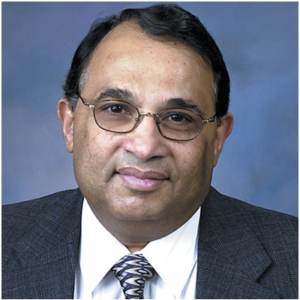Dr.Narayana Hosmane, B.S, M.S, Ph.D
Narayan S. Hosmane was born in Gokarna, Karnataka state, Southern India, and is a B.S. and MS graduate of Karnatak University, India. He obtained a Ph.D. degree in Inorganic Chemistry in 1974 from the University of Edinburgh, Scotland, under the supervision of Professor Evelyn Ebsworth. After a brief postdoctoral research training in Professor Frank Glockling’s laboratory at the Queen’s University of Belfast, he joined the Lambeg Research Institute in Northern Ireland, and then moved to the USA to study boron science. After postdoctoral work with Russell Grimes at the University of Virginia, in 1979 he joined the faculty at the Virginia Polytechnic Institute and State University. In 1982 he joined the faculty at the Southern Methodist University, where he became Professor of Chemistry in 1989. In 1998 he moved to Northern Illinois University and is currently a Distinguished Research Professor and Inaugural Board of Trustees Professor. Dr. Hosmane is widely acknowledged to have an international reputation as “one of the world leaders in an interesting, important, and very active area of boron chemistry that is related to Cancer Research” and as “one of the most influential boron chemists practicing today.” Hosmane has received numerous international awards that include but are not limited to the Alexander von Humboldt Foundation’s Senior U.S. Scientist Award twice; the BUSA Award for Distinguished Achievements in Boron Science; the Pandit Jawaharlal Nehru Distinguished Chair of Chemistry at the University of Hyderabad, India; the Gauss Professorship of the Göttingen Academy of Sciences in Germany, Visiting Professor of the Chinese Academy of Sciences for International Senior Scientists; High-End Foreign Expert of SAFEA of China; Foreign Member of the Russian Academy of Natural Sciences, and Who’s Who of Distinguished Alumni Honoree. He has published over 370 papers in leading scientific journals and is the author of five books on boron science and cancer therapies.

